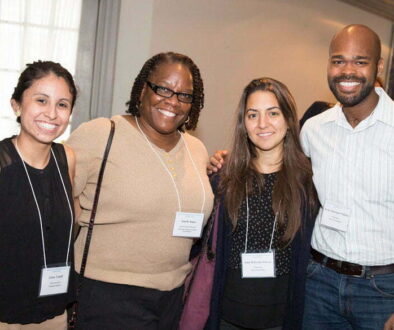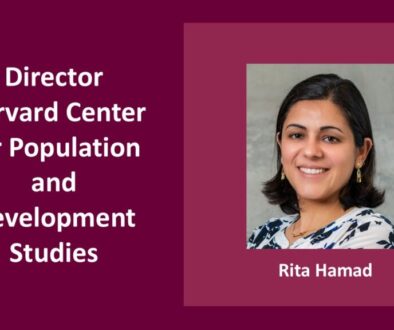Have You Heard About the NIH Dissertation Awards for Doctoral Students Studying Population Health?
Jennifer AilshireIf you have no idea what the NIH R36 grant mechanism is, don’t worry–you’re not alone. But if you’re in population health sciences and approaching the dissertation stage, or know someone who is, it’s worth getting to know more about this particular NIH grant.
The R36 program supports dissertation-related research costs of predoctoral students. There are currently four institutes/agencies that offer R36 grants: NIH, NIMH, NIDA, and AHRQ. Details on eligibility, application guidelines, and supported research topics for each institute/agency can be found at the links below:
- Aging Research Dissertation Awards to Increase Diversity (R36)
- Mental Health Research Dissertation Grant to Enhance Workforce Diversity (R36)
- Drug Abuse Dissertation Research (R36)
- AHRQ Grants for Health Services Research Dissertation Program (R36)
With the exception of AHRQ, the primary objective of the R36 program is to provide dissertation research awards to increase diversity of the pool of scientists available to support the scientific mission of the particular institute, particularly by including more underrepresented racial and ethnic scientists and individuals with disabilities.
I asked Catherine Perez, a recent recipient of a NIA R36 grant and doctoral candidate in gerontology at the University of Southern California, if she had any advice for someone considering applying for an R36. Her unequivocal response was, “Do it!” Funding rates for the R36 at NIA have typically been around 60%, so if your dissertation research is consistent with the NIA mission, you should definitely apply. Funding rates for the other institutes are a bit lower, around 20-25%, but still high enough that it’s worth applying.
asked Catherine Perez, a recent recipient of a NIA R36 grant and doctoral candidate in gerontology at the University of Southern California, if she had any advice for someone considering applying for an R36. Her unequivocal response was, “Do it!” Funding rates for the R36 at NIA have typically been around 60%, so if your dissertation research is consistent with the NIA mission, you should definitely apply. Funding rates for the other institutes are a bit lower, around 20-25%, but still high enough that it’s worth applying.
Catherine had other great advice, including considering the importance of every part of the application in how reviewers will assess its merit. Organization is the key to not feeling overwhelmed with the application, and Catherine suggests keeping a list of all the necessary documents for the application and planning due dates for when each part of the application will be completed.
This advice was echoed by another recent NIA R36 recipient, Harry Chatters Taylor, a doctoral candidate in social work at Washington University in St. Louis. He also suggested starting your application as soon as possible in advance and being prepared to revise over many, many drafts. He further recommends having several people provide constructive criticism and feedback on how to improve the ideas and writing in your application. Having the time and the feedback can be particularly useful for the R36 application because, as he points out, it can be difficult to distill the complexities of your entire dissertation idea into a six-page application.
I also asked for advice from someone who reviews R36 applications. I summarized the main points below:
- Follow the instructions! Following the formatting instructions, for instance, makes it easier for reviewers to follow the application and write their review. And not following instructions could mean your application never makes it to review.
- Make sure you sponsor is really, really committed to you and your project. This should be demonstrated, for instance, in their narrative that should enthusiastically describe your research project and the resources they will provide for you over and above the fellowship award.
- Be as thorough as possible in your description of your dissertation study – within the page limits, of course.
- Try to frame your dissertation study in terms of your path to becoming a leader in the field. Provide context for your research, why it’s interesting to you, and where you might go with future research.
- Finish your application with enough time so that at least two people can carefully read it and note any errors, inconsistencies, and other mistakes.
So if you’re thinking about applying for an R36, what’s next? Mr. Chatters Taylor suggests your first step should be to tell your PhD advisor and get in touch with a program officer at the institute you are thinking of applying to. You may also want to ask someone who has received an R36 if you can read their application so you know what a successful application looks like. And of course, be sure to familiarize yourself with the application instructions!
 Photo Credit: Lydia Polimeni, National Institutes of Health
Photo Credit: Lydia Polimeni, National Institutes of Health






All comments will be reviewed and posted if substantive and of general interest to IAPHS readers.